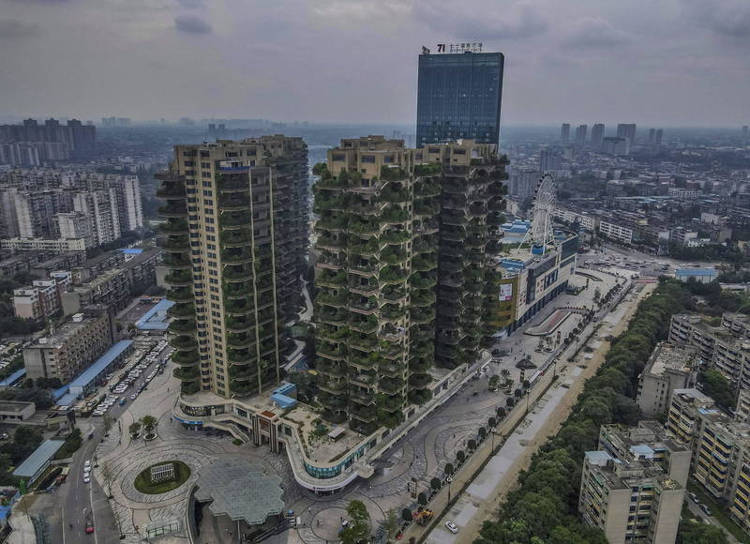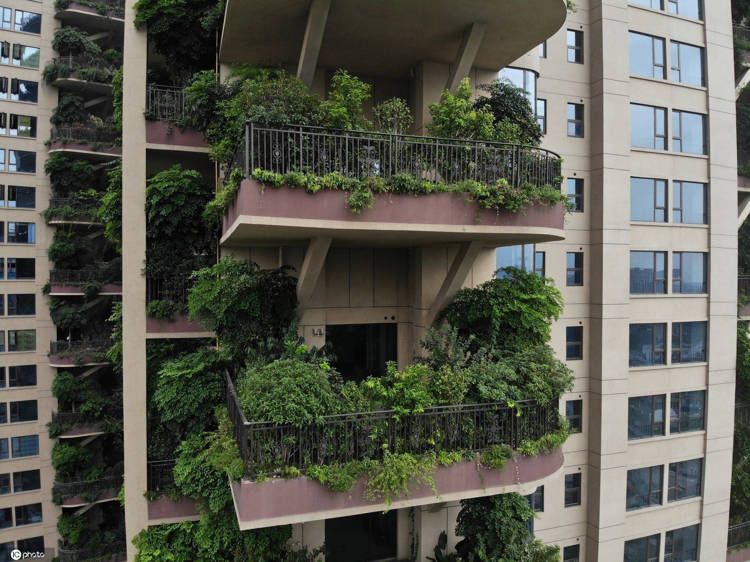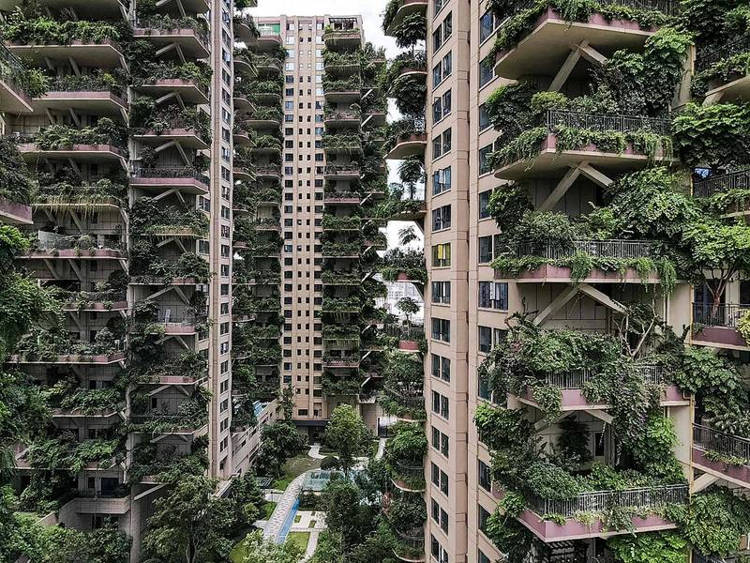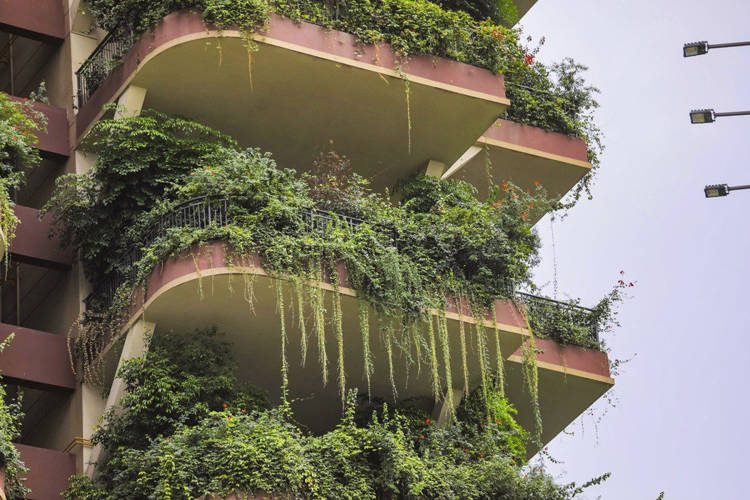‘Vertical Forest’ in Chinese Residential Complex Becomes Mosquito-Infested Jungle
Published on September 21, 2020 at 1:13 PM by Mc Noel Kasinja
The Qiyi City Forest Garden residential complex in Chengdu, China, was supposed to be a green paradise for its residents, but two years on, the vertical forest concept has turned into a nightmare.
Back in 2018, the idea of living among dozens of exotic plants proved very exciting for the people of Chengdu, one of China’s most polluted cities, and by April of 2020 all 826 units in the Qiyi City Forest Garden complex had been sold. Each unit had up to 20 types of plants growing on the balcony, and filtering the city’s air and noise pollution. However, instead of an urban paradise, the eight-tower complex looks like a scene out of a post-apocalyptic film, with balconies overrun by sprawling greenery and plagues of mosquitoes.
For reasons unknown, only 10 families have moved into the residential complex so far, which means most of the units and their allotted balcony gardens are currently unattended. Recent photos show balconies virtually swallowed up by plants, with branches hanging over balcony railings. To make matters worse, the few residents that have moved in are complaining that the unattended vertical forest has become a breeding ground for mosquitoes.

Photos of the veritable urban jungle have gone viral both in China and abroad, and in response, the property developer has promised to provide plant maintenance four times a year and also step up pest control efforts.

The current state of the Qiyi City Forest Garden complex sparked a heated debate on Chinese social media, with Hong Kong-based online publication HK01 reporting that part of the netizens find that it is a good idea to be living close to nature, while others cite safety concerns regarding the sprawling plants and the pest infestation.

“When the roots of these trees develop enough to penetrate the walls, will they affect the safety of the structure?” one person asked.

“Will a branch falling from the 30th floor kill people?” another questioned.
The vertical garden concept has been around for a long time. back in 2017, we wrote about Edificio Santalaia, in Bogota, at the time the world’s largest vertical garden.


